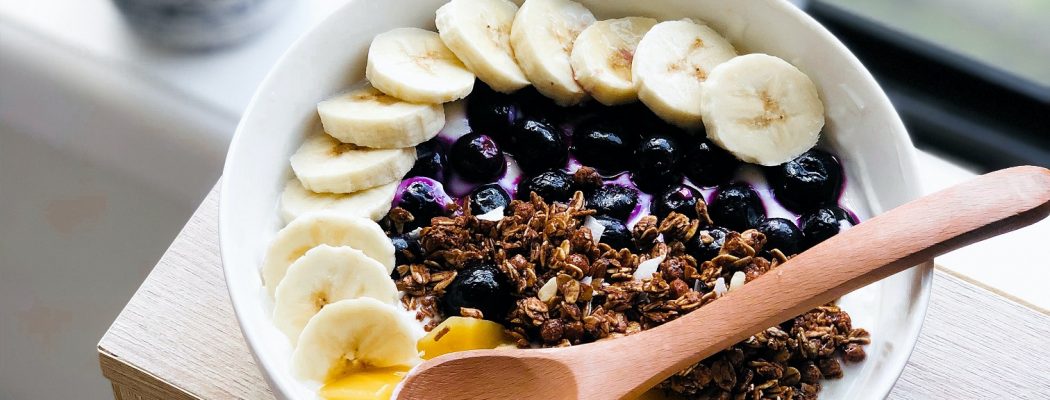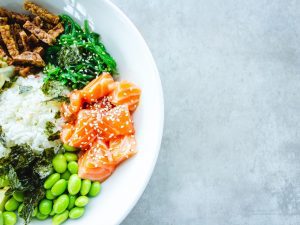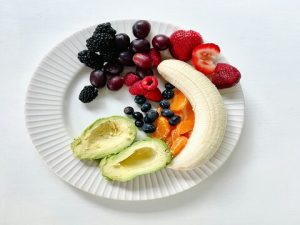Description
What Can a Certified Holistic Nutritionist Do?
A certified holistic nutritionist can provide personalized nutrition plans based on an individual’s unique needs and goals.
- Assess and analyze a person’s current diet and lifestyle to identify areas for improvement.
- Educate and guide clients on making healthier food choices, taking into consideration their preferences, allergies and dietary restrictions.
- Help identify and address nutritional deficiencies or imbalances in the body.
- Provide guidance on weight management,including creating meal plans and offering strategies for healthy, sustainable weight loss/gain.
- Support individuals with specific health concerns/conditions by developing specialized nutrition plans to alleviate symptoms or improve overall well-being.
- Offer advice on natural supplements and herbs to support optimal health and wellness.
- Assist in creating strategies for stress management and promoting a healthy relationship with food.
- Provide ongoing support, monitor progress, and make necessary adjustments to the nutrition plan as needed.
- Collaborate with other healthcare professionals, such as doctors or therapists, to ensure a holistic approach to wellness.

Program contents and eligibility
Contents:
With this program you will get all of the knowledge, skills and expertise that are required to become a successful INHS certified Holistic Nutritionist.
- All required course materials
- On-demand video instructions, lessons and other interactive contents
- Digital eBook or physical textbook (All eBooks are included)
- Different meal plans
- Self-assessments and assignments
- Necessary forms and guidelines for starting your own business
- Online final exam
Exam Requirements:
- You need a minimum final exam grade of 85% to pass.
- A $50.00 retest fee will apply.
Eligibility:
To enroll into this Program, you must:
- Be at least 18 years of age.
- Have an excellent understanding of the English language.
Course Duration:
- 6 months or less
After successful completion, you will earn the title of “Holistic Nutritionist” on your certificate.
The Curriculum in Details

Part 1:
The Principles of Holistic Nutrition
The students will learn about:
- Holistic Anatomy and Physiology and how they are connected with Holistic Nutrition
- How Holistic Nutrition can help to live a healthy life, reverse chronic diseases and optimize wellness
- The policies of the food and health industries and how to adapt to the challenges
- Various herbs and plants and their benefits in optimizing health and wellness
- Meal plans to suit different clients according to their needs
- GMOs and how they affect us
- Benefits of Organic foods
- Latest researches about nutrition
Module 1: Holistic Anatomy and Physiology
This module covers the various body systems mentioned below and how to protect and optimize them.
- Digestive System
- Intestinal System
- Circulatory System
- Nervous System
- Lymphatic System
- Respiratory System
- Endocrine System
- Urinary System
- Structural System
Module 2: How to avoid and treat 15 different life-threatening diseases
- Heart Disease
- Lung Diseases
- Brain Diseases
- Digestive Cancers
- Infections
- Diabetes
- High Blood Pressure
- Liver Diseases
- Blood Cancers
- Kidney Disease
- Breast Cancer
- Suicidal Depression
- Prostate Cancer
- Parkinson’s Disease
- Iatrogenic Causes
Module 3: – Latest Scientific Research on Nutrition and Lifestyle
This module discusses the science behind nutrition which can help you to dramatically reduce your risk of cancer, heart disease, diabetes and host of other diseases just by changing your diet. These are based on extensive research by scientists and their findings which opened the eyes to the dangers of a diet high in animal protein and to the unparalleled health benefits of a whole foods, plant-based diet. Here we explore and discovers the keys to a long healthy life.
Module 4: The Whole Plant-based and Organic foods; and their benefits
In Module 4, we study about the research that revolutionized the way we think about our food with the evidence that a whole food, plant-based diet is the healthiest way to eat. We also explore the science behind that evidence, the ways our current scientific paradigm ignores the fascinating complexity of the human body, and why, if we have such overwhelming evidence that everything, we think we know about nutrition is wrong, our eating habits haven’t changed.
The Module 4 is an eye-opening, paradigm-changing journey through cutting-edge thinking on nutrition, science tour de force with powerful implication for our health and for our world.
Module 5: Dietary Wellness for Healthy Life
In this module, we learn what and how to eat for a healthy living. How food combination can affect our health.
- Precise Dietary Habits for Optimal Health
- pH Balanced Diets for Optimal Health
- Proper combination of foods
- Dietary Wellness Planning Based On Bio-Individuality
- Vegan/Vegetarianism verses Flesh Food Eating
- Raw Foods Versus Cooked Foods
- Food as Medicine
Module 6: Herbology
In this module, we study the benefits of different herbs and how they can be used on daily basis to improve our health. What you’ll learn:
- Better care for yourself, your family and your clients
- Increase overall health and well-being
- Help prevent chronic disease by reducing oxidation and inflammation
- Support the healing of chronic conditions through foods and herbs
- Reduce medical bills and visits by treating acute, non-emergency situations at home
- Create highly effective tinctures, vinegar extracts and glycerites.
- Perfect healing herbal-infused oils for topical applications.
- Brew several different types of beneficial medicinal tea.
- Benefit from healing poultices and compresses.
- Enjoy great tasting medicinal honeys and syrups.
- Learn about Essential Oils/Aromatherapy
- Various herbal recipes
Module 7: Designing and Planning Diet
• Defining the Optimum Diet
• Modern Dietary dilemma and challenges
• Reverse-Engineering longevity with food and nutritional science
• The low-carb trend and the promises & pitfalls of Paleo Diet
• Navigating everyday food choices
• Health-Promoting foods to eat everyday
• Understand the Psychology and Physiology of food and pleasure
• Various recipes based on the Whole, Organic and Real foods.
Module 8: Tools Mastery for Nutrition Counseling/Coaching
•In this module, the students will learn the tools required to successfully deliver nutrition counselling/coaching.
This is a video-based lesson and contains interactive quizzes to help understand the subject better.
.
Part 2:
Nutrition Counselling
Know the different strategies and practices for different types of assessment made which analyzes various health needs in regard to diet and exercise. Motivate, guide and educate the clients to set achievable health goals and various ways of maintaining these goals throughout their lifetime.
Upon completing the course and getting certified by INHS, the candidate can apply for the optional board certifications.






